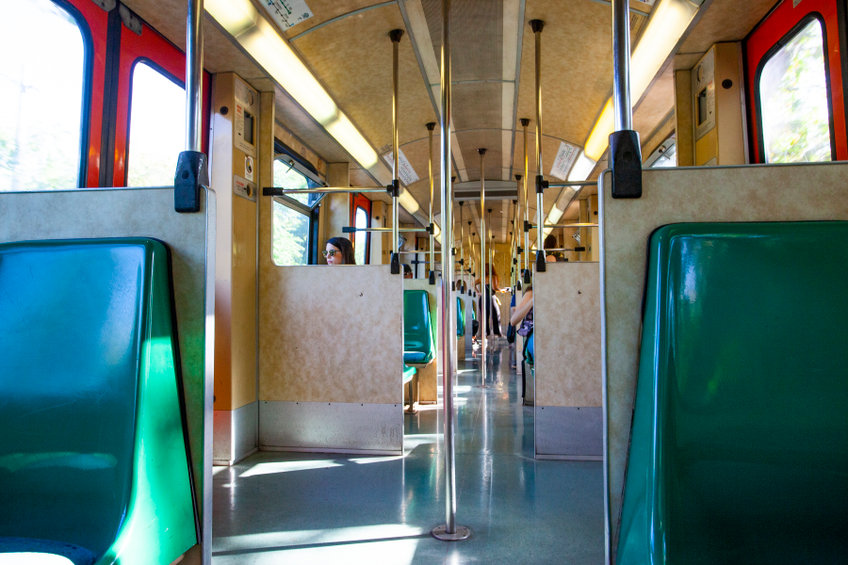Humility and Geography
09/30/2021We can learn a lot from the ancient world, but humility is not one of those things. Granted, the dutiful hero Aeneas in Virgil’s Aeneid is resigned to the fate the gods have assigned him during his long odyssey from Troy to found Rome, but that is not the same thing as humility.
Humility is not often advertised as the essential ingredient for navigating life and accomplishing our goals. Perhaps it is because of the way one’s culture may define it as weakness. But, properly defined, humility becomes a key to comprehending and navigating your world so you can do the thing you are called to do.
I concede one point Virgil gets about this virtue: humility IS indeed a question of geography. But it is not of the map kind. It has to do with where you are seated internally. Are others given the space due them, or do you remain the imagined center?
Consider this example. You are in a full metro car; an elderly gentleman steps into the car, and a young woman offers the elder her seat. The younger one takes a less comfortable position in order to cede a seat to the elder.
Now, no one on the metro is saying, “See how that person giving up her seat belittles herself before a total stranger.” (Though if you were from the ancient world, you may have.) No, it has relatively little to do with thinking less of oneself, rather, it has to do with thinking of oneself less.
And what set apart this young woman in the first place, that she would practice humility on the metro? It has something to do with where she is directing her attention. For as the elder steps into the metro car, you observe that virtually all your fellow travelers are looking at their phones but for this one person. It is not that the others deliberately ignore the elder; it is that they do not register his presence at all. Their attention is directed elsewhere. But the person who practices humility notices the elder. She has incorporated into her heart the reality that others are around her. This is why it is accurate to say that it is not the content of the phones that is the cause of the lack of humility among your fellow travelers; no, rather, it is their lack of attentiveness that is the cause.
Humility acknowledges that I am not the center. It acknowledges that I have a context, a story greater than myself involving others I may need to adapt to. It acknowledges that the center of that story is in motion, flowing from person to person, and I respond accordingly. Finding the location of that center requires attentiveness: “What do you need? Where do you hurt? How can I help you?” Such questions inform our attentiveness and inform our response.
And this is where humility takes a self-aware turn. For we, too, have needs; we, too, hurt; we, too, need help. We are a part of the story. We must adapt there too. We must receive. But when it comes to us and humility, it is helpful to understand that humility has something to do with recognizing our limits, be those physical, financial, emotional, intellectual, or spiritual. Our limits speak of a center that is not ourselves to which we are adapting.
And where, ultimately, do we find that true center? In the One who made us. Here is the ultimate answer to the question of geography: Am I seated in the center of my life, or is my Creator seated there? The essential condition for humility rests in the answer to this question.

Good news is stored up for the one who adapts to this reality, the one of God being the center. We see this good news in the revelation given to John the Beloved. He is taken to the center of all things, the throne room of the Creator, the place from which all things originate, both visible and invisible. Here mighty beings — “elders” — are casting their crowns before the enthroned God, saying: “Worthy are You, our Lord and God, to receive glory and honor and power, for You created all things; by Your will they exist and came to be.” (Rev 4:11) The elders worship, which is the ultimate act of de-centering oneself, the sweetest fruit of humility.
But what does John see there? A double mystery involving an even more profound humility. God Himself cedes His central position in the outworking of the story of the world. God Himself adapts to the center: “Then I saw a Lamb who appeared to have been slain, standing in the center of the throne, encircled by…the elders.” (Rev 6:11) Who is this Lamb? The Messiah, who “loves us and washed us from our sins with his own blood, and has made us kings and priests to His God and Father,” (Rev 1:5-6). Jesus Christ, one with the Creator, reveals the second portion of this double mystery. Even though He is the center of attention of all creation, He is not the center of His own attention. Enthroned in glory, He still asks us the questions, “What do you need? Where do you hurt? How can I help you?” And He serves us accordingly. He lays His life down for us and gives us a seat in the realm of His glory.
This reality is the deepest wellspring inspiring our own humility until we can no longer adequately express the virtue as merely a matter of adapting to proper geography, but rather, a wholehearted giving over of ourselves to an overflowing joy. And this is why it can accurately be said that humility does not only put us in our proper place but opens up a whole, wide world of possibilities. The old-fashioned word for this whole, wide world of possibilities is grace. And that is a word that the ancient world did not live by at all. But you can. Just give Him your seat.
© Kurt Mähler

